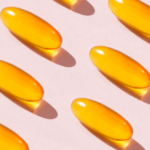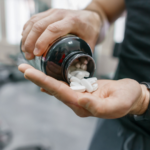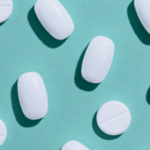Zinc wasn’t identified as an essential micronutrient in humans until 1961. Since then, we have come to understand the vital role of zinc in men’s health.
What is zinc?
Zinc is a chemical element found in the Earth’s crust. Humans use zinc for many things, including galvanising steel, vulcanising rubber and in sunscreens. The same properties of zinc that make it useful to humans make it essential for life.
Where does the zinc in our bodies come from?
Zinc is an essential mineral we get from the food we eat, which is needed for hundreds of different processes in our bodies. Foods high in zinc include meat, fish and other seafood (especially oysters), eggs and dairy foods. Beans, nuts and grains contain zinc but it’s less easily absorbed from these foods than it is from animal products. Fruits and vegetables don’t contain much zinc. This means that vegetarians and vegans may need zinc supplements to avoid zinc deficiency.
How much zinc do I need?
Adult males need 14 mg/day of zinc (that’s about three oysters worth). Children need about half of that amount, and teenage males need almost as much as adults.
What does zinc do in our bodies?
The critical biological role of zinc is clearly demonstrated by the severity and variety of health and developmental problems caused by zinc deficiency. It leads to iron deficiency anemia, liver and spleen enlargement, short stature, signs of low testosterone and impaired cognitive function.
What is the role of zinc in men’s health?
Zinc is needed for the normal function of the prostate gland, sperm production, regulation of testosterone levels and fertility.
1. Zinc and prostate function
The prostate gland produces fluid that is needed to support sperm and makes up about one-third of the volume of semen. Zinc is critical for the production of prostatic fluid.
The cells of the prostate have much higher levels of zinc than other tissues in the body. The high zinc levels in these cells allow them to produce fluid that has a very high citrate content. Sperm uses citrate in the prostatic fluid as an energy source and it protects sperm against the acidic environment of the vagina.
Abnormalities in zinc metabolism in prostate cells are associated with the development and progression of prostate cancer, and are linked to prostatitis and benign prostatic hyperplasia. However, there are no good quality data suggesting that zinc supplementation can reduce the incidence or progression of prostate disease.
2. Zinc, sperm and fertility
Zinc has important roles in the production and function of sperm. Some studies show positive relationships between zinc levels and semen quality. However, a randomised controlled trial of zinc (and folic acid) supplementation in couples undergoing fertility treatment showed no improvement in semen quality and live births.
3. Zinc and testosterone
Zinc deficiency causes low testosterone levels, and zinc supplementation for men with low levels increases their testosterone levels. Zinc supplements for men who are not deficient do not increase testosterone though. There is no evidence that taking zinc can boost testosterone levels, muscle mass or performance in people whose levels are sufficient.
Do you need a zinc supplement for men’s health?
If you eat a varied diet and have no symptoms of deficiency, additional zinc is unlikely to provide extra benefits and could be harmful in excess.
Zinc, like other essential nutrients, is critical for normal body function. The best way to make sure you have enough zinc (and other minerals and vitamins) is to eat a healthy diet.















